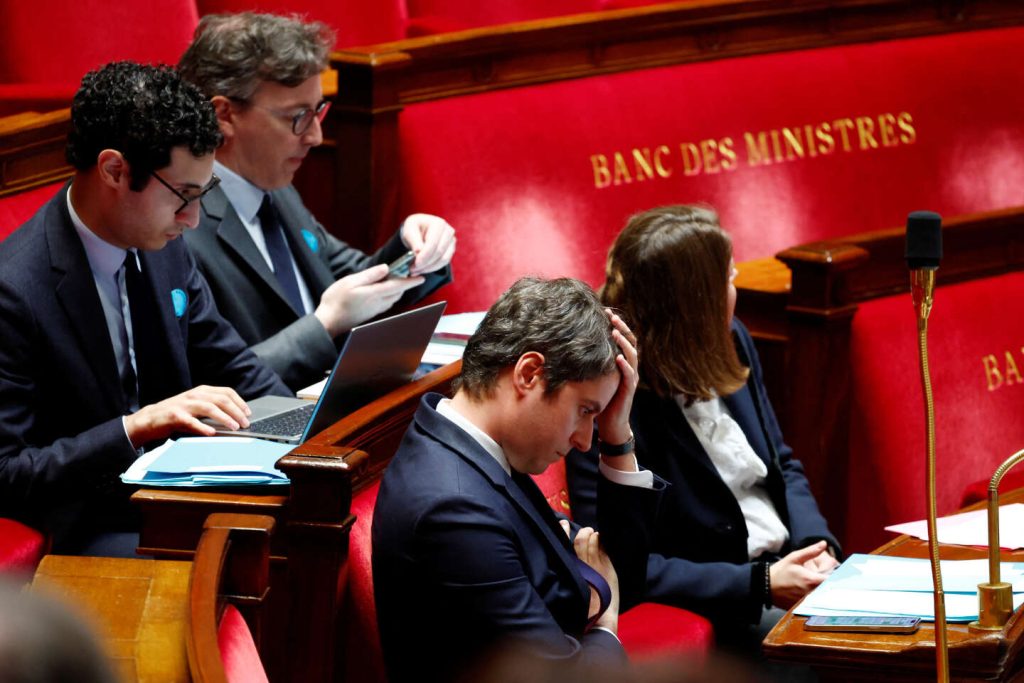The French government is struggling to implement a new budget strategy amidst slowing economic growth and increasing public deficits. Despite announcing 20 billion euros in savings by 2024 without parliamentary approval, the government led by Gabriel Attal now aims to reduce the public deficit to below 3% of GDP by 2027, as it recently rose to 5.1%. However, the new stability program presented to the Council of Ministers on April 17 has failed to convince both the High Council of Public Finance and economists. The growth forecasts are seen as overestimated, and the budget savings are considered lacking in credibility and coherence.
Emmanuel Macron’s government faces a budget trap as its reliance on supply-side policies has proven insufficient to sustain growth and reduce deficits. The political landscape is challenging, with the far-right National Rally leading in European election polls and the government facing the threat of a vote of no confidence. Macron has chosen to avoid involving Parliament for now and has delayed any major political confrontations until after the European elections. The budget trajectory reflects this cautious approach, with a gradual reduction in deficits planned for 2025 and 2026, but the lack of concrete proposals on public spending reduction adds to the skepticism of experts.
The budget trajectory outlined by the government will require significant efforts to achieve the necessary savings in the coming years. With a commitment to avoid tax increases, the government faces a tough balancing act to find 25 to 30 billion euros in savings by 2025, with ongoing effort required beyond that. This ideological stance of not increasing taxes further complicates the budget adjustment process, as the government has not presented clear plans on how to reshape public spending. The High Council estimates that nearly 60 billion euros will need to be adjusted between 2023 and 2027, a colossal effort that has not been seen before.
The credibility of the government’s budget plan remains in question, as it may differ significantly from what will actually be implemented. Despite being at the bottom of the Eurozone in terms of deficits, France has managed to maintain credibility and influence in Europe and globally in recent years. However, with public debt projected to stabilize at 112% of GDP by 2027, France’s room for maneuvering and differentiation has shrunk. Political debate, postponed for electoral reasons, is now more necessary than ever to hold decision-makers accountable and address the challenges ahead.
In conclusion, the French government’s attempt to establish a new budget strategy has been met with skepticism and criticism from experts and economists. The reliance on supply-side policies and the avoidance of tax increases have complicated the challenge of reducing deficits and managing public finances effectively. As France faces a significant adjustment in its budget trajectory and public debt levels, political debate and accountability are essential to address the country’s financial challenges and safeguard its credibility in the international arena.


